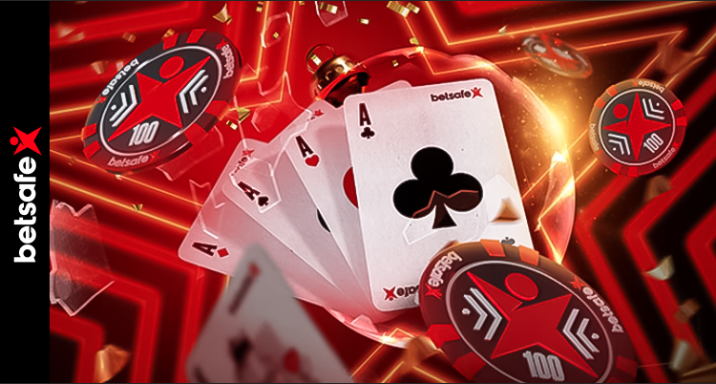
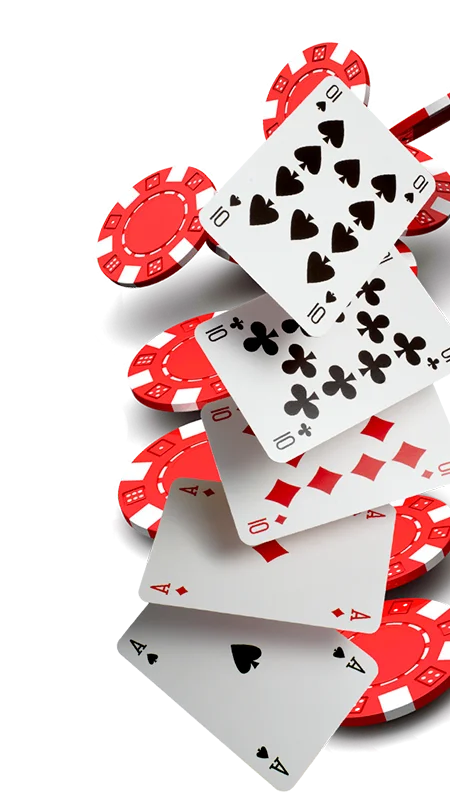
Flop in PLO poker part II: about blockers and multi-drafting
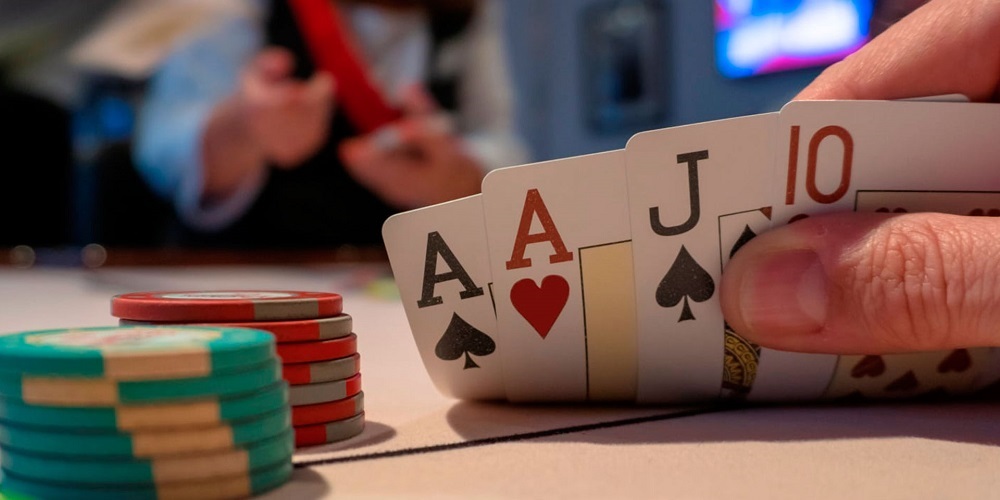
In the first part we already saw how some
essential aspects of Omaha poker changed drastically compared to Texas
Hold'em. The dynamics are different, the way in which the strategy is drawn on
the flop also differs from what you know from Texas Hold'em, and the way to get
a winning hand has nothing to do in one modality and another.
If in the first chapter we focused on transversal aspects applicable to Omaha poker, in this second part we are going to talk about two key aspects in the flop of a game of this game modality: the blockers or blockers, and the multiple projects.
What are blockers in
Omaha?
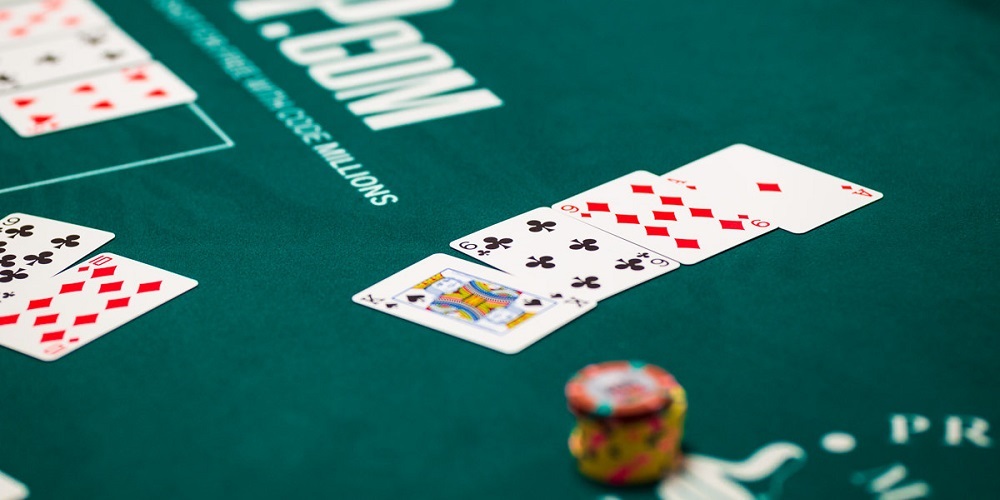
Let's start with blockers. In Omaha poker, we
understand by "blocker card" that which is capable of limiting the
possible combinations of hands in a certain range. It is that card that you
have in your possession and that is one of the outs, one of the cards that
would help your opponent to materialize his project.
For example, if among our cards we have an ace,
it reduces the possibility that our opponents have strong aces. Although
these blockers or blocking cards also exist in Texas Hold'em, they are usually
transcendental in Omaha games.
As we saw in the first part of how to play
the flop in Omaha poker, the number of starting hands is so high and
the action takes place at such a high pace, that all players at some point will
have the strongest hand, so detecting blocking cards is important in the games
of this type of poker.
This type of cards is important to have them under control, since in
Omaha poker it is very common that a strong hand becomes worthless from one
moment to the next. Having a limiting card can prevent your opponent from
making a hand more powerful than yours, although it can also happen the other
way around, keep this in mind.
In addition, blockers are a good way to get
an equity in a disguised way, allowing you to increase your chances
of winning and lowering your opponent's chances of winning. Keep in mind that
the more blocking cards you have, the more your pot odds will increase.
The probabilities of each player are related
and are inversely proportional, that is to say, if you have several
blocking cards, your chances of winning the pot will increase, while those of
your opponent will decrease; if your opponent had more blocking cards, the
proportion would be inverted.
Keep another thing in mind: your opponent
doesn't know what blocking cards you have; if he has several, he may
mistakenly think he has the winning hand, so you can use this to your advantage
to make him think he has it made and give him the chop after having made him
raise round after round. If you use this factor to your advantage on the flop
in Omaha poker, you're halfway there.
Let's look at two scenarios comparing the role of a play with a blocking card and one without.
Example of a hand without
a blocking card
Hand 1: 3ª 4♣ 4♣ 9♦ K♦
Hand 2: 2♣ 2♣ 10♥ Qª J♥
Flop: 8♥ 9♥ K♣
Here hand 1 has double pairs K♦ K♣ 9♦ 9♥, and hand 2 has 19 outs or cards
that can complete your draw of, in this case, flush or straight.
Hand 1 has no blockers. In any case, K♦ would act as a blocker, since K♥ would help to make the flush of hand 2 come true, but then hand 1 would take the pot with a Full House. Even taking into account this small blocker, hand 2 would still have 18 outs. Despite having a worse hand, it would be more likely to take the hand.
Example of a hand with a blocker card
Hand 1:7♥ 9♦ Q♦ Q♦ K♦
Hand 2: 2♣ 10♥ J♥ Qª
Flop: 8♥ 9♥ K♣
Here, hand 1 has blockers for both straight and flush. Therefore, his equity increases to 5 points, the same points that hand 2 loses.
How to play a multidraw in
Omaha poker
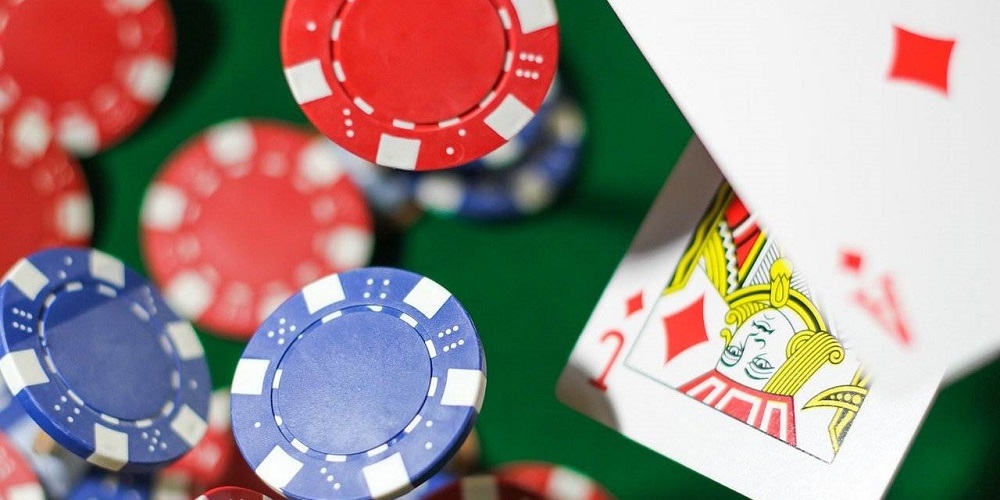
Multiple draws are a good way to diversify
strategies and attack the pot from different perspectives. This is one of
the characteristics of Omaha poker, that there is a great probability that the
cards favor a multiple draw and you can tie a good hand in several ways.
Why are draws so important in Omaha poker?
Because, contrary to what usually happens in Hold'em, in this modality the
draws are often stronger than the hands. A strong Omaha player is
a specialist in playing good draws, and almost always tends to create multiple
draws with which to go two or more hands.
Keep in mind that playing only hands will not do you any good in Omaha poker. It is in your best interest to play the draws. For example, double pairs are not going to do you much good, especially if they don't have a blocker. On the other hand, if you use those cards to open several draws, your game will change and you will be in a stronger position for the following rounds.
PLO Basics

When playing an Omaha poker game, you're not
just going to have to be aware of blockers or your multiple draws. Aspects such
as lower limits are crucial to managing your bankroll properly, as well
as setting up stop losses to avoid tilt, which is more prevalent in Pot Limit
Omaha.
Tilt is very common in PLO, and is the biggest threat. The variance is very high, so it
is very easy to experience ups and downs. Being a game more of projects than
hands, those coming from Texas Hold'em will find the dynamics of PLO more
complex, mainly because PLO is a postflop game.
If you have A♣ A♦ in Texas Hold'em you will most likely be the favorite until the river to take the hand, but if you have A♣ A♦ on the flop in PLO, your hand will be devalued as the rounds go by, because your opponents will be more likely to open multiple projects and get double pairs with which they try to tie projects that leave your pair of aces in diapers. A player who does not assume that will fall into tilt very soon.
Concepts such as equity, position and
freerolling take on special significance in Pot Limit Omaha. If you want to
train yourself in Omaha poker, we advise you to start by handling the
essential concepts of poker and to understand their meaning in Omaha in
order to play well.
You may also like

Bluffing mastery. What’s the difference between a bluff in online and physical poker?
Bluffing mastery. What’s the difference between a bluff in online and physical poker? Poker is everywhere, especially online, and that’s all thanks to the wild advancements that have happened over...

César García Triumphs in Monte Carlo: First Spanish Trophy at the 2025 EPT
César García Triumphs in Monte Carlo: First Spanish Trophy at the 2025 EPTCésar García claims first Spanish title at EPT Monte Carlo 2025The 2025 EPT Monte Carlo festival kicked off with fireworks...
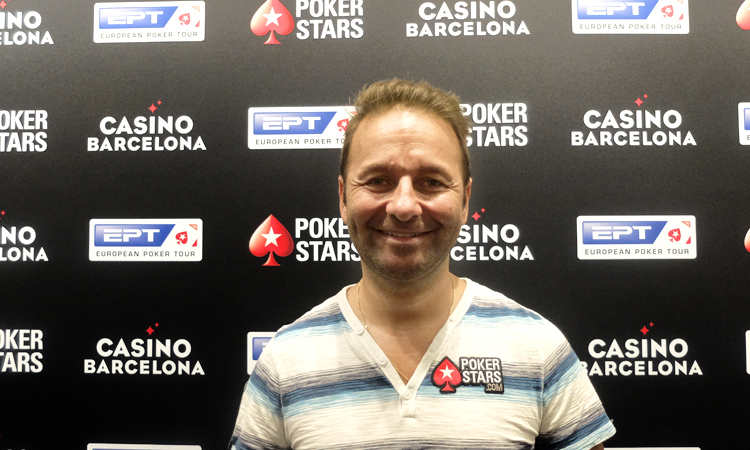
Talking to Daniel Negreanu
Talking to Sir Negreanu This week is the PokerStars European Poker Tour at Barcelona and Casino Barcelona is just loaded with huge personalities and professional poker players. We had the pleasure...





